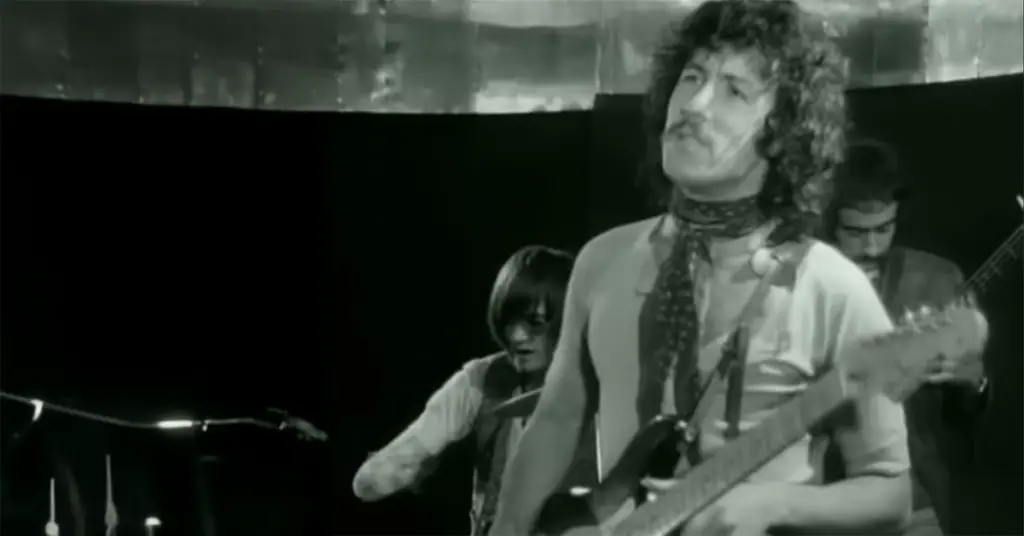The Haunted Beauty of Peter Green: A Fan’s Tribute to a Bluesman Like No Other
Some guitarists impress you with speed. Others with flash.
Peter Green? He broke your heart—with one note.
I’ll never forget the first time I heard “Albatross.” I was 16, lying on the floor with a borrowed pair of headphones and a stack of vinyl from my older cousin. When that slow, shimmering guitar washed over me, I didn’t even know what to call it. It wasn’t a song—it was a feeling. I lay there, completely still, thinking: Who plays like this?
That was the beginning of my love affair with Peter Green—and the start of a lifelong journey through the blues, the cosmos, and the quiet ache of the human soul.
The Heart of Fleetwood Mac—Before the Pop Years
Long before Fleetwood Mac became a stadium-filling pop-rock machine, it was a dirty, raw blues band led by a soft-spoken, shy genius named Peter Green. He formed the band in 1967 after a short but unforgettable stint with John Mayall’s Bluesbreakers—where he had the impossible task of following Eric Clapton.
And somehow, he did. In fact, he didn’t just fill Clapton’s shoes—he made people forget they were ever there.

Peter’s tone was warmer. Sadder. Wiser. There was no ego in it—just soul. Whether it was the mournful “Need Your Love So Bad” or the snarling “Oh Well,” you could hear the vulnerability, the hurt, the humanity. He wasn’t just playing the blues—he was the blues.
A Guitarist Who Spoke Without Words
People always talk about Peter’s 1959 Les Paul—“Greeny”—with its reversed pickup magnet, that signature out-of-phase tone. Sure, gearheads can get lost in that stuff. But the truth is, Peter could’ve played a broomstick with strings and still broken your heart.
The way he phrased his solos—it was like he was having a quiet conversation with himself. Like he was searching for something he’d never find, but couldn’t stop reaching for. That vulnerability is what makes his music eternal.
You want proof? Listen to “Man of the World.” It’s not just a song—it’s a soul laid bare. That lyric—“I just wish that I’d never been born”—cuts deeper than any guitar solo ever could. And yet, his guitar somehow says the same thing… without words.
The Tragedy of Genius
Peter’s story isn’t an easy one. At the height of Fleetwood Mac’s early success—with hits like “Black Magic Woman,” “The Green Manalishi,” and “Albatross”—he walked away. Fame, money, pressure… it all became too much. His battle with mental illness took him to dark places. For years, he disappeared from music entirely.
I used to wonder what might’ve been—how high he could have flown if he’d stayed. But over time, I realized: what he gave us was enough. Maybe even more powerful because of the pain behind it.
He didn’t burn out chasing fame. He gave us a few brief years of brilliance, and then faded into legend.
The Comeback: Quiet, Humble, Powerful
When Peter Green resurfaced in the late ’90s with the Splinter Group, I bought every album without hesitation. Was it the same Peter Green from Then Play On? No. But it was honest. Gentle. Grateful. It felt like watching a wounded bird find flight again—wings a little bent, but still soaring.
I saw him live once during that period. He stood quietly off to the side, playing softly, letting the band do the heavy lifting. But every now and then, that old magic would flicker through his fingers. And when it did, you could hear the crowd hold their breath. We weren’t there to see a “comeback.” We were there to say thank you.
Why Peter Green Still Haunts Me
There are a lot of “greats” in the blues world. But Peter Green? He was something rarer: pure. He never chased trends. He didn’t need to scream to be heard. He whispered—and we leaned in.
In a world full of shredders and showmen, Peter Green reminds me that the real power lies in restraint, in feel, in silence between the notes.
He passed in 2020, and I still get choked up thinking about it. But when I put on Then Play On or The End of the Game, he’s still here with me. Still asking questions we’re all too afraid to say out loud.
For the New Listener
If you’re new to Peter Green, start with Bluesbreakers with Eric Clapton to see where he started. Then go straight to Fleetwood Mac’s early albums: Peter Green’s Fleetwood Mac, Mr. Wonderful, Then Play On. Don’t miss “Man of the World,” “Love That Burns,” or “The Supernatural.” Then dive into the Splinter Group years.
Every phase of his career has something to teach you—about music, about emotion, about being human.
Peter Green didn’t just play the blues. He felt it so deeply, he bled it into every note. And that’s why, all these years later, we still hear him calling from somewhere far away… and we still listen.
Thank You
We appreciate your time and dedication to reading our article. For more of the finest blues guitar music, make sure to follow our Facebook page, “I Love Blues Guitar”. We share exceptional selections every day. Thank you once again for your continued support and readership.


Facebook Comments